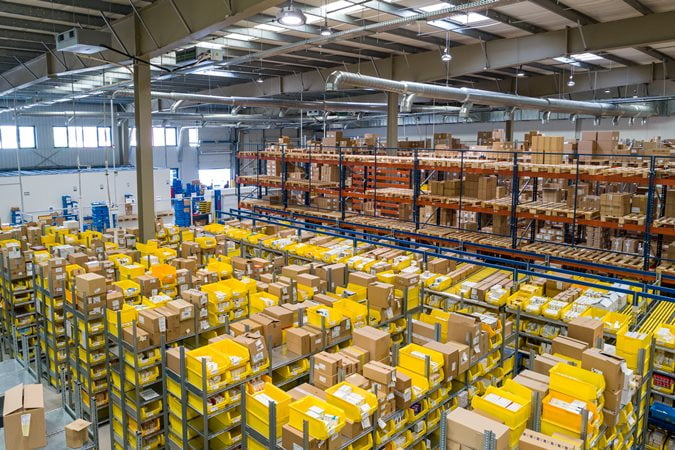THE warehouse has become the most vulnerable link in the supply chain for crime syndicates. This is evidenced by the recent spike in warehouse robberies that have involved the theft of millions of rands of high-value goods.
“It has become increasingly difficult to breach tighter security measures that have been implemented at the airports and during the actual transportation of the goods to better safeguard against cargo theft. However, warehouses are often neglected. They, therefore, currently provide the easiest point in the supply chain from which to steal high-value goods. Often, the weak link is the ‘insiders’ – people working throughout the supply chain and specifically in these facilities. Many are forced, coerced, or tempted into providing sensitive information that will help syndicates gain illegal access to the premises and to valuable commodities. Sometimes, they are directly involved in aiding and abetting the crime. These crimes are also well planned. For example, there is usually a spate of warehouse burglaries during the Easter Weekend when most staff are on vacation, and the facilities, rely mainly on skeleton crews.
Incidences have also sometimes been violent in nature with access gained through ‘Trojan Horse’ tactics, staff held up at gunpoint and tied up by the perpetrators,” Managing Director of Secure Logistics, André Du Venage, tells Cape Business News. The Certified Fraud Examiner (CFE) and Certified Security Management Professional (CSMP) has extensive security experience. This includes 14 years working for the South African Police Services mainly investigating organised cargo crimes. This is in addition to 21 years in Security Risk Management, of which 16 were spent specifically in the cargo protection industry. Notably, he is currently undertaking research into the role that the Transport Asset Protection Association’s (TAPA) Facility Security Requirements have played in improving the protection of cargo in the Europe, Middle East and Africa (EMEA) region.
Du Venage is the South African Lead of TAPA’s EMEA Region, and the research is being undertaken for a thesis he is completing to attain an Executive Master of Business Administration Degree from the University of Cumbria, UK. This is the very first time that this topic has been researched in this context. He expects to see a continued significant improvement in cargo security operational effectiveness through the implementation of TAPA’s certification programmes. The research will also be a sound starting point for more companies to share information that will help improve security of cargo. At present, this is a major stumbling block in improving cargo security in South Africa. Since the disbandment of specialised police units, such as the Gauteng Truck Hijacking Unit, for which Du Venega served as Detective Captain and 2iC between 1992 and 1998, there has been limited sharing of information between companies to help improve cargo security. Certainly, the situation has also played its part in the marked increase in the hijacking of valuables in transit in South Africa.
The point of delivery of the high-value goods and their transportation over the “last mile” to the consumer by courier services and sometimes smaller companies also remain notoriously weak points in the supply chain. Du Venage says that these areas of the supply chain were also targeted during the lockdown period when there was an exceptionally high demand for electronic products, such as laptops, notepads and tablets. Many of these stolen products will often end up across the country’s borders although there is also a thriving market for them in this country.
Despite the increase in security in other areas of the supply chain, syndicates do still breach them. Trucks transporting valuable goods to and from the airport are always at risk. “There are more attempts at stealing high-value goods on our roads than there are for cash in transit. Bear in mind that a single truck could be transporting between R10-million and R20-million-worth of top-end electronics. These incidents are usually just as violent as those that involve cash-in-transit attacks with shots fired at truck drivers and the escort vehicles. Security staff and drivers are also often abducted and threatened as part of the attack.
Secure Logistics continues to work closely with leading companies and their third-party logistics provider to develop and implement a comprehensive cargo security service. This includes risk consulting, cargo protection services and investigations. Moreover, the company has earned a reputation for the high quality of its airside protection and monitoring, as well as armed surveillance escort services. The company also transports high-value cargo using the latest protection technology, including anti-jamming and locking systems. Moreover, the company secures sea-freight containers with specially designed locks. The service includes inspecting containers and monitoring their movement from the company’s sophisticated control room and via its escort services.
“Security is very seldom a top priority for companies. The reality is that many companies still only respond reactively when chaos erupts after a disruption in the supply chain. If security is not taken seriously and considered a priority in business, then reputations are compromised, staff demotivated and the entire business negatively impacted when customers start leaving. Security is a long-term initiative that requires ongoing top management involvement right down to every worker if success is to be achieved. The phases of good security include risk identification, risk mitigation and resilience strategies, among other factors,” he concludes.
